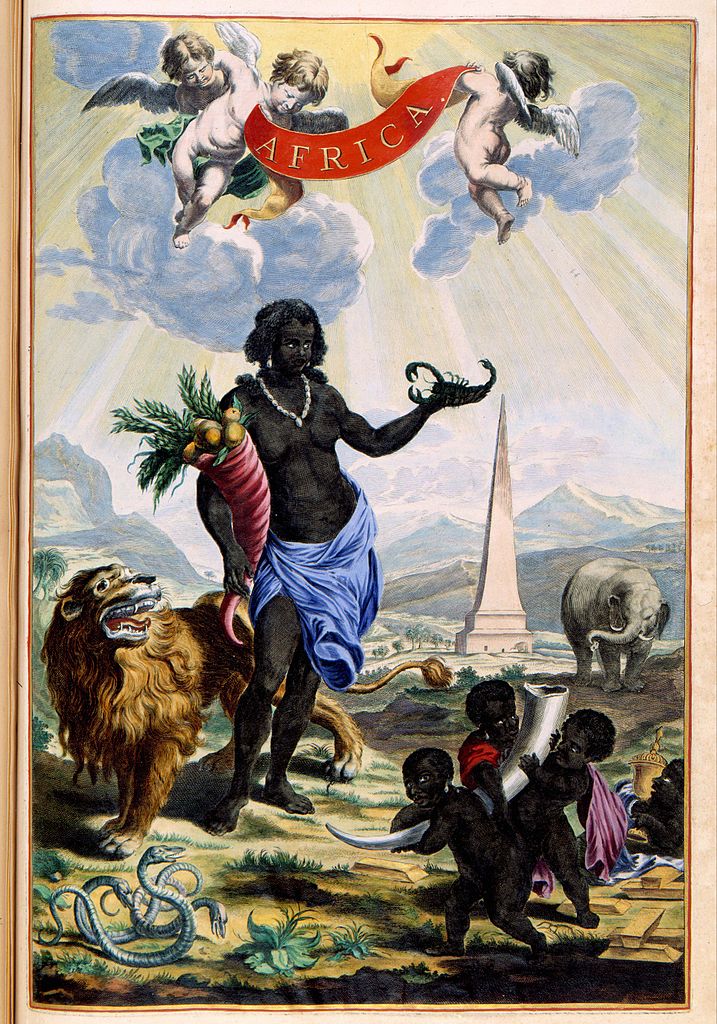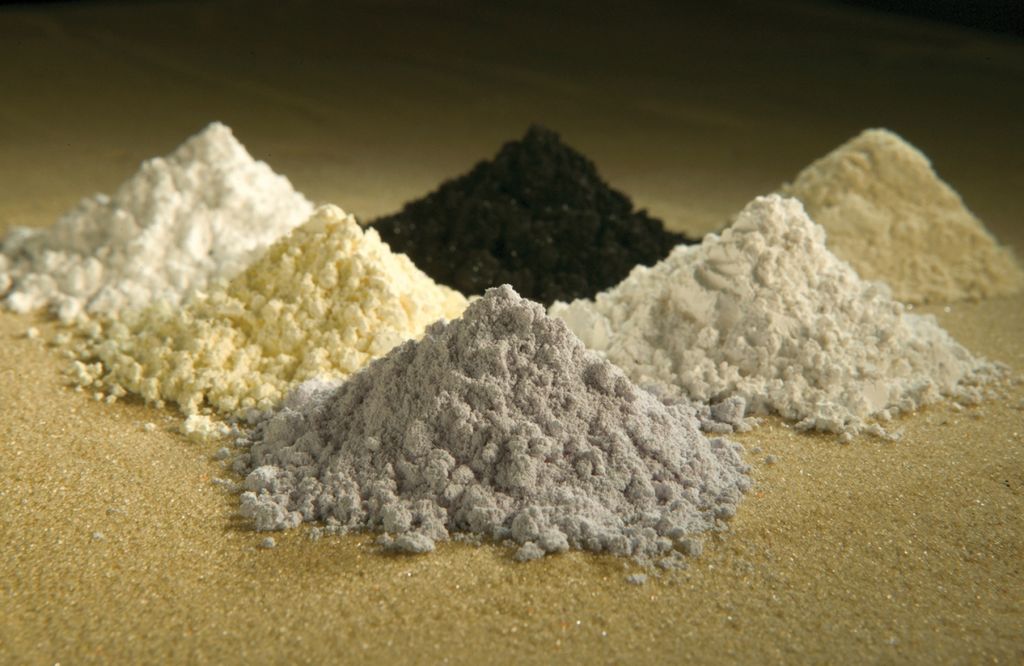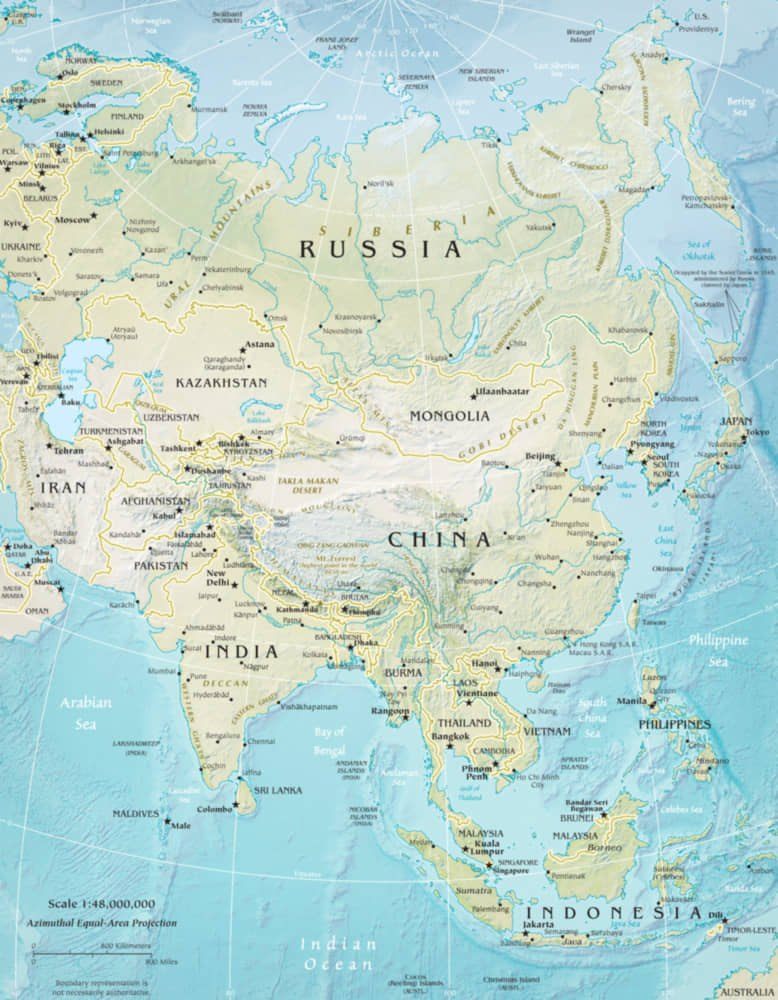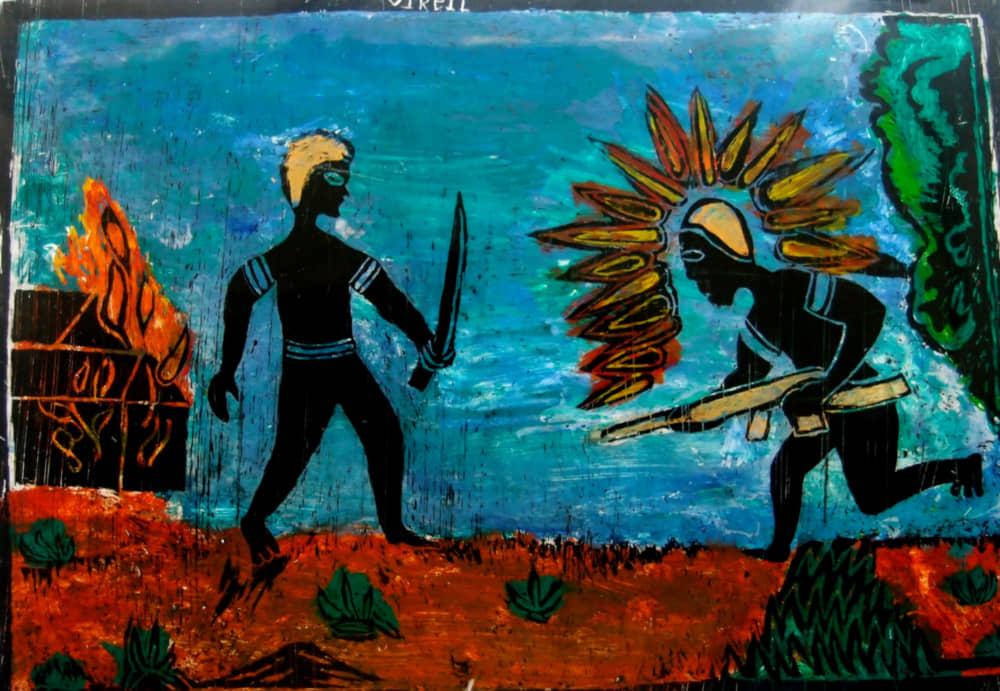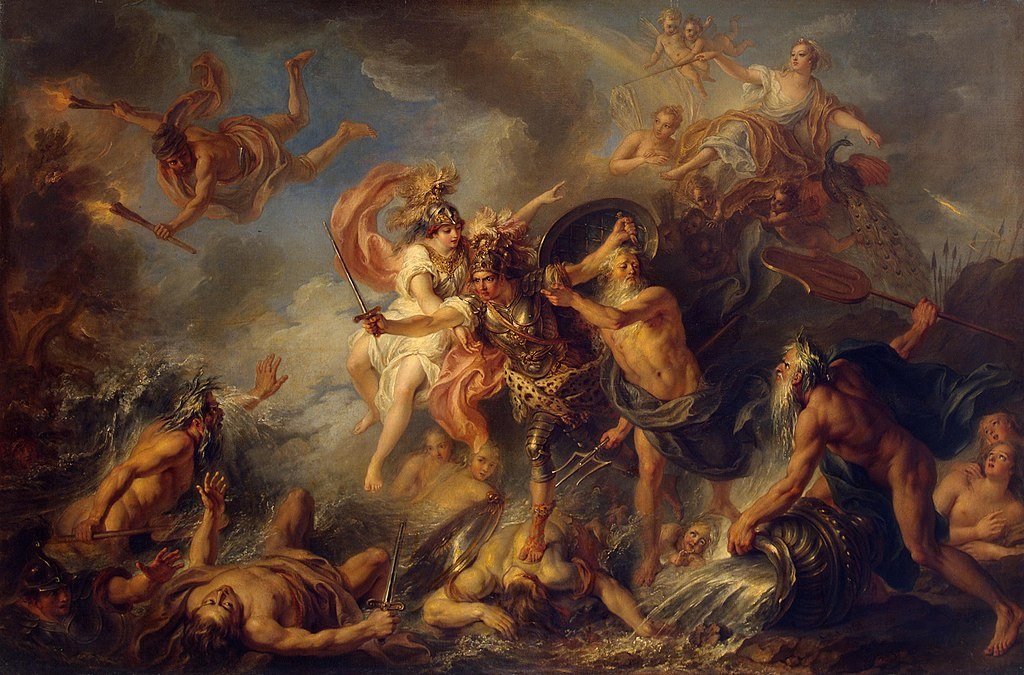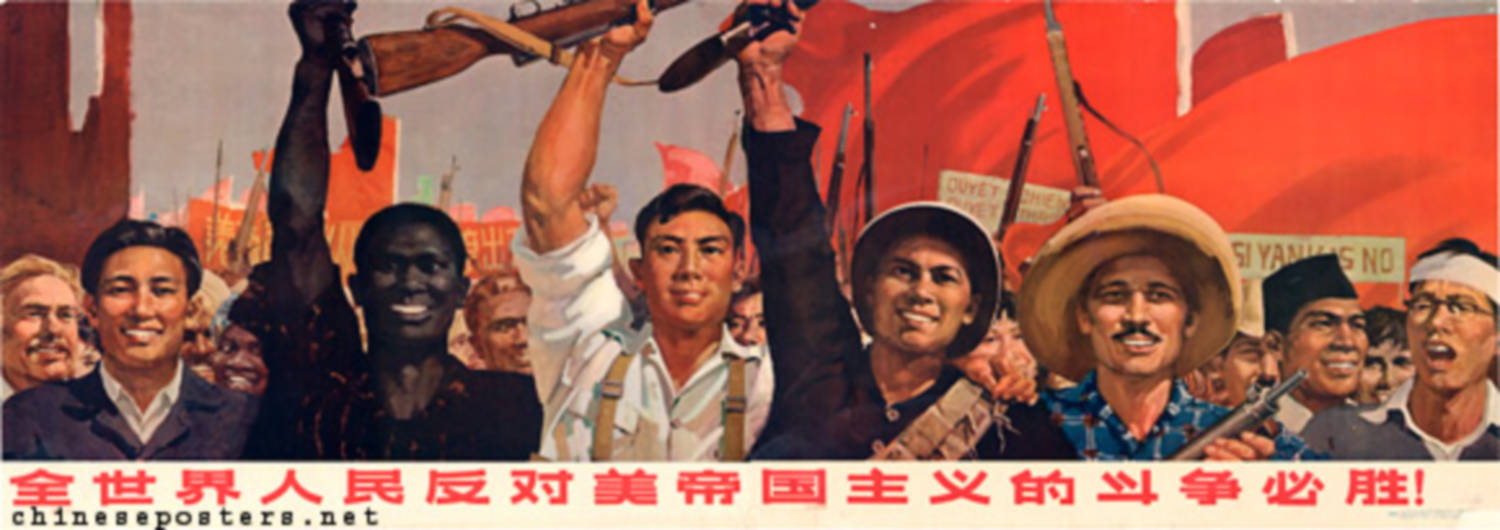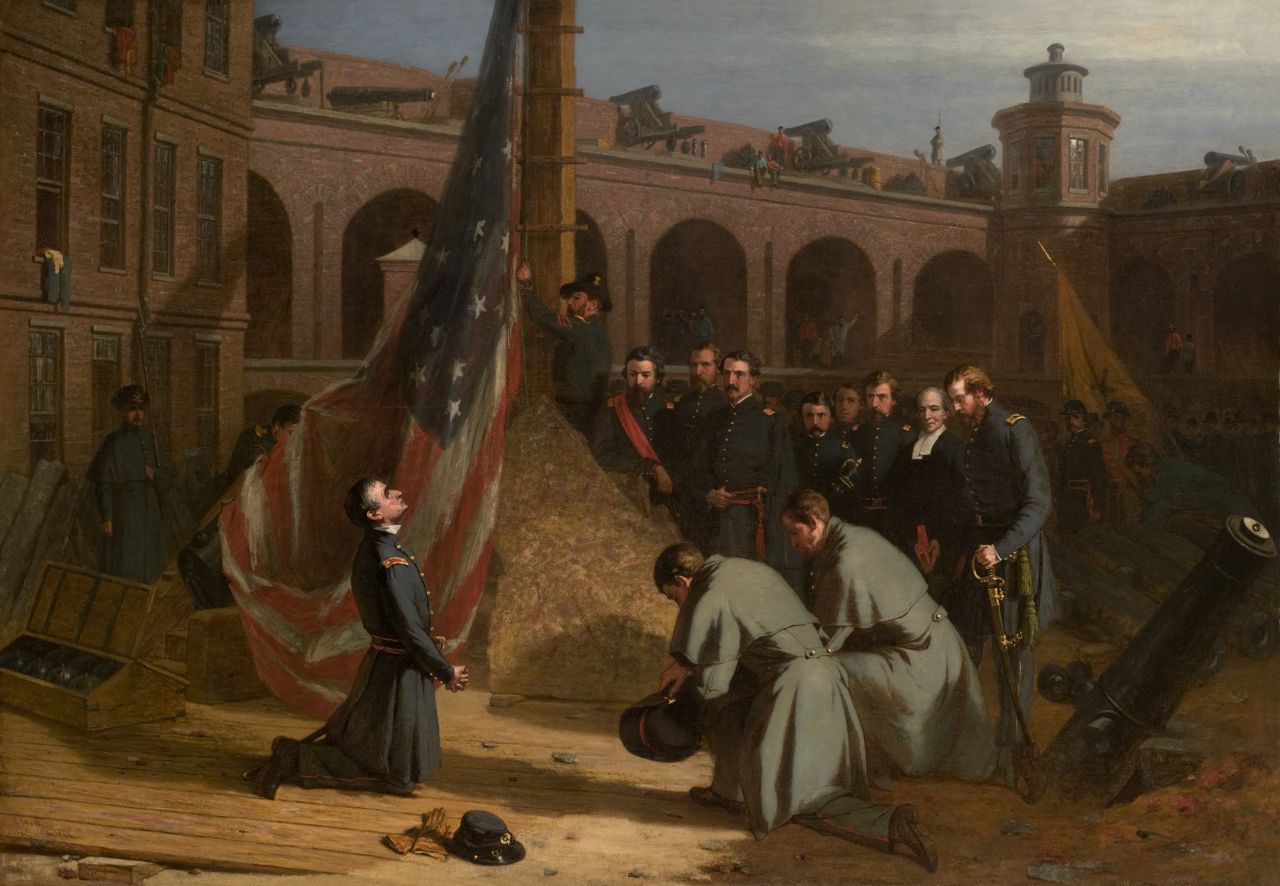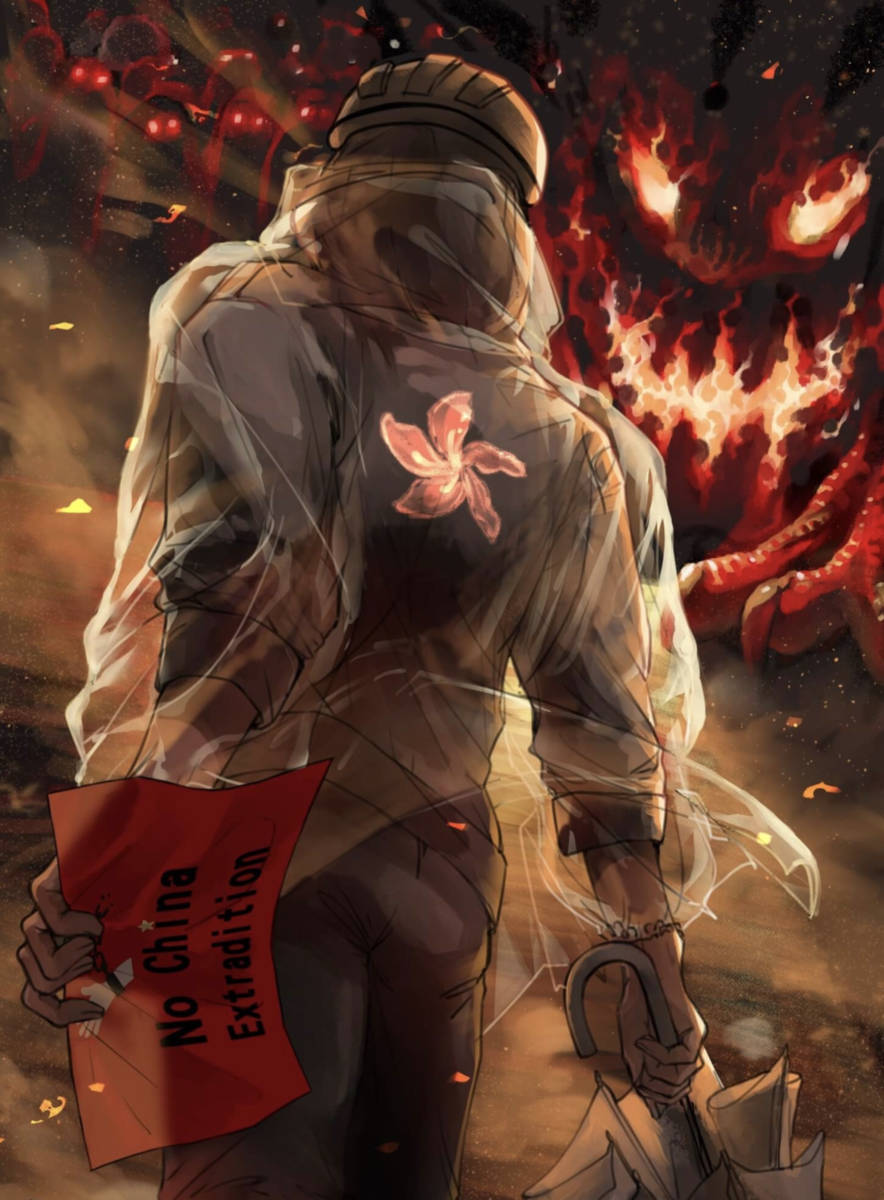In academia, music is regarded as a “cultural universal” or “human universal” found among all peoples in history. This view is attractive both to a) multiculturalists who want to promote the idea of a “common humanity,” or a “cosmopolitan consciousness” in our diverse Western nations, and to b) scientists who believe that all humans are equally “hardwired for music“. Various theories have been offered on the origins and role of music: i) it evolved as an elaborate form of sexual selection, primarily to seduce potential mates, ii) as a “shared precursor” of language, iii) as a practical means to assist in organizing and motivating human work, iv) to encourage cooperation within one’s community, v) as a pleasant preoccupation or source of amusement, relaxation and recuperation, vi) to express one’s cultural identity and feel united with one’s culture through social celebrations, such as weddings, funerals, religious processions and ceremonial rites.
These explanations have a major, disquieting flaw: they can’t explain why Europeans were continuously creative in music for many centuries, responsible for the highest, most complex form of music, classical music, along with the invention of the most sophisticated musical instruments, the articulation of all the treatises on music on matters related to pitch, notes, intervals, scale systems, tonality, modulation, and melody. Classical music expresses the best that man as man has achieved in music. It is not that other cultures did not create great folk music, which is essential to a people’s identity. It is that their music was performed by custom over countless generations without exhibiting a continuous line of creative composers striving for higher levels of musical expression.
Treatises on Music
From its beginnings in ancient Greece, we witness systematic treatises about the nature of music, outlining its terminology, note names, tetrachord names, conjunct and disjunct tetrachords, the meaning of tonoi, harmony, species of consonances, names of octave species, as well as efforts at a scientific theory of acoustics. While Pythagoras is generally considered to have initiated a theoretical study of acoustics, the treatise Elements of Harmony (330 BC) by Aristoxenus is now regarded by many scholars as the first book to have argued that the nature of music is fundamentally different from the natural world, and that the laws of traditional mathematics by which the Pythagoreans explained natural phenomena can’t explain the phenomena of music. Music merited a science of its own.
Musical space is incommensurable, Aristoxenus argued, and the elements of music are not isolated entities but integral parts of an organic whole from which each part derives its meaning and position. Aristoxenus, according to Flora Levin, “accomplished something whose importance cannot be overstated: he freed the science of harmonics from the bonds of the Pythagorean theory of proportions, the numerical theory that is applicable only to commensurables” (p. 197). The correct way to determine the size of intervals was not by numerical ratio, but by ear. Other important Greek theorists of music with a predilection for rigorous thought and systemic definition and classification, include Cleonides (c. 100’s/200’s BC), Ptolemy (100 – 170 AD) and Aristides Quintilianus (35 – 100 AD). Of these, only parts of the writings of Ptolemy, famous for his outstanding works in geography and astronomy, survive under the title Harmonikon [Harmonics]. He followed the theoretical approach of the Pythagoreans, for basing musical intervals on mathematical ratios. Ptolemy also argued, with respect to tonoi, that the height of pitch was only one source in the variety and expression of music, along with the arrangement of intervals within a vocal register. Greek theory influenced all subsequent Western thinking on music.
In the Middle Ages, De institutione musica (524) by Boethius, which described the Pythagorean unity of mathematics and music, and the Platonic concept of the relationship between music and society, was widely read; but the most significant theoretical contribution came from Guido of Arezzo (991/992 – 1033), on the strength of his invention of modern musical notation (or staff notation) that replaced neumatic notation. The staff enabled scribes to notate relative pitches precisely and freed music from its dependence on oral transmission. Guido is also credited with the use of the “ut–re–mi–fa–sol–la” (do–re–mi–fa–so–la) mnemonic device, or memory device. Guido’s treatise Micrologus Guidonis de disciplina artis musicae [The Epitome of Guido on the Discipline of the Art of Music] was widely recognized among the educated.
Another important figure was Franco of Cologne, who codified a system of notation in his Ars cantus mensurabilis [Art of Measured Song] (1280), in which the relative time values of notes, ligatures and rests were clearly laid out. This led to the revolutionary invention of polyphony, a type of musical texture consisting of two or more simultaneous lines of independent melody, as opposed to just one voice—an aspect of Western music not duplicated in any other culture.
Then came Ars Nova through the writings of Johannes de Muris (1290-1355) and Philippe de Vitry (1291-1361). The former’s treatise, Notitia artis musicae [A Note on the Art of Music] (1321), is credited with dramatically increasing the “fidelity with which a musical notation system could represent complex rhythmic patterns… modeled on the astronomical method for mathematically organizing time.” The latter’s writings contain “a detailed account of the various uses and meanings of the coloured notes, and the introduction of additional durational symbols in the new notational system.”
Great Composers of the Middle Ages and the Renaissance
All the greatest composers in history were European. With the invention of the Ars Nova we can start identifying great individual composers, beginning with the Frenchman Guillaume de Machaut (1300-77), who adapted secular poetic forms into polyphonic music, not only the motet, which is based on a sacred text, but also secular song forms, such as the lai or short tales in French literature, and the formes fixes, such as the rondeau, virelai and ballade, into the musical mainstream. Francesco Landini (1325-1397) was the foremost musician of the Trecento style, sometimes called the “Italian ars nova,” and known for his virtuosity on the portative organ and for his compositions in the ballata form. Writers noted that “the sweetness of his melodies was such that hearts burst from their bosoms.” He may have been the first composer to think of his music as striving for perfection, writing: “I am Music, and weeping I regret seeing intelligent people forsaking my sweet and perfect sounds for street music.”
The English would produce their own great composers, most notably John Dunstable (1390-1453), who developed a style, la contenance angloise, which was never heard before in music, using full triadic harmony, along with harmonies with thirds and sixths. This time period also witnessed the Burgundian School of the 1400s, associated with a more rational control of consonance and dissonance, of which the composer and musical theorist Guillaume Dufay (1397-1474) was a member, and who was known for his masses, motets, magnificats, hymns, and antiphons within the area of sacred music, as well as secular music following the formes fixes. This School originated in the “cosmopolitan atmosphere” of the Burgundian court, which was very prestigious in this period, influencing musical centers across Europe.
Creating a bridge beyond the Middle Ages, the Burgundian School paved the way for the Renaissance, which saw a rebirth of interest in the treatises of the Greek past. Franchinus Gaffurius’ Theorica musicae [Theory of Msuic] (1492), Practica musicae (Practice of Music] (1496), and De harmonia musicorum instrumentorum opus [A Work on the Harmony of Musical Instruments] (1518), incorporated Greek ideas brought to Italy from Byzantium by Greek migrants. These were the most influential treatises of the late fifteenth and early sixteenth centuries. There were significant composers during the early Renaissance, particularly Johannes Ockeghem (1420-97), with his Missa prolationum, a “technical tour de force in which every movement is a double mensuration canon.”
The most renowned, and possibly the first in the pantheon of “greatest composers,” is Josquin des Prez 1450/1455-1521), called the “father of musicians,” who made extensive use of “motivic cells,” easily recognizable melodic fragments which passed from voice to voice “in a contrapuntal texture”—a basic organizational principle in music practiced continuously from 1500 until today. This figure of the Renaissance distinctly aimed to raise music into an “ars perfecta,” that is, “a perfect art to which nothing can be added.” Theorists such as Heinrich Glarean and Gioseffo Zarlino agreed that his style represented perfection. For Martin Luther, Josquin des Prez was “the master of the notes.”
The next giant in the pursuit of musical perfection was Adrian Willaert (1490-1562), the inventor of the antiphonal style (which involves two choirs in interaction, often singing alternate musical phrases) and an experimenter in chromaticism and rhythm.
Striving for Perfection versus Music outside Europe
This striving for perfection through a long historical sequence by individuals from different generations, seeking to outdo the accomplishments of the past, points to a fundamental contrast between the models of beauty and achievement in the Western and the non-Western worlds. The impression one gets from the study of the history of music in such civilizations as ancient Egypt, Mesopotamia, China, or Japan, is that of time standing still in a state of accomplished perfection after a sequence of achievements. In the Western world, the history of music is heavily characterized by linear time, continuous novelties, if sometimes slow and interrupted, but always moving; whereas in the East, after some initial achievements, further changes are rare, as if perfection, believed to have been achieved, needed to be frozen in a world of cyclical time.
To understand the European linear conception of perfection, their consistent striving for higher forms, it might be useful to go back to the ancient Greek ideal of arete, a term that originally denoted excellence in the performance of heroic valor by individuated aristocratic Indo-European warriors. In pre-Homeric times, it signified the strength and skill of a warrior. It was his arete that ranked an aristocrat (aristos = “best,” “noblest”) above the commoners; and it was the attainment of heroic excellence that secured respect and honor among aristocratic peers. The word aristeia was used in epic stories for the single-handed adventures of the hero in his unceasing strife for superlative achievements over his peers. In its origins, arete was thus “closely bound up with the physical power” of warriors. But starting with Homer, the word came to denote excellence in spiritual qualities. In the Odyssey, we witness a new type of heroic personality, Odysseus, who rejects Achilles’s brutal treatment of Hector’s body, and shows self-awareness and self-control, inventiveness and craftiness. Thereafter arete came to denote all kinds of actions and spiritual qualities expressing the best in human abilities. But the ancient Greeks still had a cyclical conception of time, which found philosophical expression in Plato’s idea that there are perfect Forms existing outside time, unchanging ideals that transcend time and space, and that humans require strenuous training and breeding to approximate these Forms. Nevertheless, the competitive aristocratic individualism of the ancient Greeks could not be contained, with subsequent philosophers before and after Plato proposing their own conceptions of truth, originating novel ideas, along with the development of geometrical deductive thinking, prose writing, government based on civic citizenship beyond feuding tribal identity; a sequence of masterful writers from Aeschylus to Sophocles to Euripides, the development of cartography, musical theory, and much more.
This ideal of excellence had a profound influence on the development of Christianity as a European religion that aimed at raising humans to the highest demands of God. Unlike the gods of non-Western peoples, which asked for submission and fear, Christianity called upon Europeans to rise to the skies in search of perfection. This ideal was one of the most important contributions of Greek thought to Christianity, “to honor the Most High God,” “to produce a well sounding harmony to the glory of God” (in the words Bach would use later on). As the individualism of the West took off with the demolition of kinship ties, the promotion of nuclear monogamous families, the rise of associations and institutions, based on legal contracts rather than kinship norms (cities, universities, guilds, monasteries), a historicized linear conception of perfection developed; the idea that perfection lay in the future, rather than in some golden past age, or in some Platonic Form frozen out of time.
In contrast, no linear conception of perfection emerged in a non-western world where kinship institutions prevailed and the individual was thus submerged within traditional collective norms and obligations. Artistic achievement in this world was measured in terms of the reenactment of past achievements, in some past golden age. The cultural and intellectual history of China was always characterized by a turning to the past, to restore the idealized society of earlier times, as admired by Confucius. The history of music in China (and the rest of the non-western world) is characterized by this traditionalism, coupled with a lack of individual creativity, stereotypification, conformity to a general pattern or type deemed to be already perfected. Once instruments of music had reached a reasonable level of efficiency, and once a level of expertise had been reached, these were passed on without any changes for hundreds of years.
Britannica Encyclopedia offers a long entry on the history of Chinese music, identifying it as one of “the most highly developed of all known musical systems.” It is true: as in many other endeavors, the Chinese musical tradition is relatively accomplished, with some degree of historical development. This Britannica entry, however, soon acknowledges that except for archeological records and a few surviving written sources, it is only from the Song dynasty (960–1279 AD) onwards “that there is information about the actual music itself.” Ancient Chinese written sources provide “images of courtly parties, military parades, and folk festivals,” but they do “not provide a single note of music.” The Chinese theory of music, as expressed in the “Yueji” (“Record of Music”) chapter of the Liji (Book of Rites) was about how “music is the harmony of heaven and earth while rites are the measurement of heaven and earth. Through harmony all things are made known, through measure all things are properly classified. Music comes from heaven; rites are shaped by earthly designs.” This basic philosophical outlook would remain intact throughout China’s history until Western influences came.
A tonal system was conceptualized to some degree in China. They created bamboo tuning pipes from which twelve pitches could be derived, and a “tonal vocabulary from which assorted scales—specific orderings of a limited number of pitches—can be extracted and reproduced on different pitch levels.” Still, the Chinese never conceived a science of music as a separate field. This is implicitly acknowledged in the Britannica article: “The five core tones of Chinese scales are sometimes connected with the five elements, or wuxing (earth, wood, metal, fire, and water), while the 12 pitches of the tonal system are connected by some writers with the months of the year, hours of the day, or phases of the moon Music merited a science of its own.”
They developed a system of classification of instruments; however, “this system was based upon the material used in the construction of the instruments, the eight being stone, earth (pottery), bamboo, metal, skin, silk, wood, and gourd”. This is very different from the classification system of the West, which was focused on the actual tonal range of the instruments:
- Higher-than-sopranino instruments: soprillo saxophone, piccolo
- Sopranino instruments: sopranino saxophone, treble flute
- Soprano instruments: concert flute, clarinet, violin, trumpet, oboe, soprano saxophone
- Alto instruments: alto flute, alto recorder, viola, French horn, natural horn, alto horn, alto clarinet, alto saxophone, English horn
- Tenor instruments: trombone, euphonium, tenor violin, tenor flute, tenor saxophone, tenor recorder, bass flute
- Baritone instruments: cello, baritone horn, bass clarinet, bassoon, baritone saxophone
- Bass instruments: bass recorder, bass oboe, bass tuba, bass saxophone, bass trombone
- Lower-than-bass instruments: contrabass tuba, double bass, contrabassoon, contrabass clarinet, contrabass saxophone, subcontrabass saxophone, tubax, octobass
The history of music in China through the medieval and modern eras consists in the effects of foreign instruments and ideas coming from the Persians, Arabs, Indians, and people from the Malay Peninsula, particularly during the Tang dynasty (7th-10th century). After this era, starting with the Song dynasty (960–1279), one sees the consolidation of earlier intra-Chinese trends, a more national rather than international cultural atmosphere. The Chinese did not produce a single treatise of music that we can identify as theoretical, on matters related to pitch, notes, intervals, scale systems, tonality, modulation, and melody. Britannica says that “the official Song shi (1345; “Song [Dynasty] History”) contained 496 chapters, of which 17 deal directly with music, and musical events and people appear throughout the entire work.” They also wrote manuals on how to play some instruments. However, these were descriptive works. The Britannica article does not mention one single Chinese composer. After all, China did not produce any classical music.
Revolutionary Epochs in Western Music
Europeans invented the opera. Britannica confounds Chinese musical theatre with “operas.” True operas could not have emerged outside Europe because opera is a drama that combines soliloquy (literary form of discourse in which a character talks to him/herself when alone or unaware of the presence of other characters), scenery, dialogue, continuous music inspired by literary ancient Greek tragedies and comedies, together with allegorical and pastoral interludes, with choruses and large instrumental ensembles—all without parallels outside Europe. As it is, Britannica admits that Chinese “operas…all tend to follow a tradition of using either standard complete pieces or stereotyped melodic styles (banqiang [musical text settings]).”
It should be noted, moreover, that the literary form of tragedy does not exist outside Europe. Tragedy could only have been possible in the West since tragedy supposes a heroic figure determined to achieve greatness, which will inevitably issue in one-sided actions that bring suffering to others and violate their legitimate rights and plunge the hero into actions that bring about his demise. Operas grew out of madrigals, and the madrigal originated from the three-to-four voice frottola (1470–1530); from the unique interest of European composers in poetry (particularly pastoral poems about shepherds), and from the stylistic influence of the French chanson; and from the polyphony of the motet.
It is not inaccurate to use the title “Confucian China” from ancient times until Mao, or to say Islamic civilization from the beginnings until the present, or “Hindu India” from the beginnings until recently—but it is very inaccurate to say Platonic, Aristotelian, Stoic, Catholic, Protestant, Renaissance, Newtonian, Enlightenment, or Existentialist Europe. Europe sees a continuous history of grand epochs. These epochs, with varying titles depending on subject of study, can be found in all the realms of culture, painting, architecture, music, literature, philosophy.
We can identify the Ancient, Medieval, Renaissance, and Reformation eras before the onset of the Baroque. There is no space here to list every major composer of “late Renaissance” Italy, England and Germany, but mention should be made of John Dowland’s (1562-1626) lute songs, and the increase in new forms of instrumental music and books about how to play instruments, of which the most influential was Michael Praetorius’s Syntagma Musicum [Encyclopedia of Music] (1614-1619), an encyclopedic record of contemporary musical practices, with many illustrations of a wide variety of instruments, harpsichord, trombone, pommer, bass viola—signaling the fact that Europeans would go on to create almost all the best musical instruments in history. The greats of the Reformation period included John Taverner (1490-1545), best-known for his masses based on a popular song called The Westron Wynde, and Missa Gloria tibi Trinitas, as well as the composers Christopher Tye, Thomas Tallis (1505-1585) and Robert Whyte (1538-1574). The greatest of them all, Giovanni da Palestrina (1525-94), called the “Prince of Music” and his compositions “the absolute perfection” of church style, composed 105+ masses and 250 motets, 68 offertories, 140 madrigals and 300 motets. He is remembered as a master of contrapuntal ingenuity, for his dynamic flow of music, not rigid or static, for the variety of form and type of his masses, for melody that contain few leaps between notes and for dissonances that are confined to suspensions, passing notes and weak beats.
Meanwhile, while the rest of the world would not yet see a treatise on music, Girolamo Mei (1519-1594) carried a thorough investigation of every ancient work on music, writing a four book treatise, De modis musicis antiquorum (Concerning Ancient Musical Styles), soon followed by Galileo’s father, Vincenzo Galilei’s Dialogo della musica antica et della moderna [Dialogue on Music Ancient and Modern] (1581), where he used Mei’s ideas to attack vocal counterpoint in Italian madrigal, arguing that delivering the emotional message of poetical texts required only a single melody with appropriate pitches and rhythms rather than several voices simultaneously singing different melodies in different rhythms.
The Baroque
The next epoch is the Baroque between 1600 and 1750. Baroque originally meant “bizarre,” “exaggerated,” “grotesque,” “in bad taste,” but then it came to mean “flamboyant,” “decorative,” “bold,” juxtaposition of contrasting elements conveying dramatic tension. This period saw instrumental music becoming the equal of vocal music as Europeans learned how to make instruments with far higher expressive capacities, replacing the reserved sound of viols with the powerful and flexible tone of violins, better harpsichords, and originating orchestral music.
It is not easy to demarcate new epochs in Western history for this is a continuously creative civilization in many interacting fields—music, painting, exploration, architecture, science, literature—with different dynamics and therefore different yet mutually influential cultural motifs and reorientations. Some figures are considered “transitional” figures. Claudio Monteverdi (1567-1643) is such a transitional musician between the late Renaissance (since there was no Reformation in Italy) and the Baroque. The originality of Western cultural figures, moreover, never came out of the blue but obtained its vitality from its rootedness in the European past, reinterpreting and readapting ancient Greek, Roman, and medieval Christian themes.
Monteverdi’s famous opera L’Orfeo (1607), for example, drew from the Orpheus of Greek mythology (as transmitted by Ovid and Virgil). Monteverdi’s “Lamento d’Arianna” was based on the Greek Ariadne myth. Orpheus, in Monteverdi’s adaptation, was a musician and renowned poet who descended into the Underworld of Hades to recover his lost wife Eurydice. Orpheus is allowed to go to his wife so long as he does not look at her, but overcome with his love, he breaks the law of the underworld, and looks at her, and loses her forever. Orpheus is a god-like figure in this heroic rescue mission, who experiences intense emotions in rapid succession; bravery, euphoria, and despondency. This adaptation was mediated by the personal experiences of Monteverdi, his intense grief and despair at the loss of his wife, combined with his chronic headaches and deteriorating eye sight. The cultural influence of Rome is evident in his trilogy, the operas Il ritorno d’Ulisse in patria (1640), L’incoronazione di Poppea (1643), and Le nozze d’Enea con Lavinia [now lost] (1641), inspired by a historical trajectory that moves through Troy, the birth of Rome to its decline, and forward to the foundation and glory of the Venetian Republic. Republican rule by proud aristocrats unwilling to submit to a despotic ruler is unique to the West, inspiring the American “res-publica.” In the 1600s there were 19 Orphean opera versions, and countless operas based on other mythologies about Venus, Adonis, Apollo, Daphne, Hercules, Narcissus.
The invention of the Italian madrigal found its highest expression in Monteverdi, whose first five books of madrigals between 1587 and 1605 are estimated as monuments in the history of the polyphonic madrigal. What made Monteverdi stand out among many other luminaries of his age (Henrich Isaac, Orlande de Lassus) was the way he established in his opera a complete unity between drama and music for the first time in history, a repertoire of textures and techniques “without parallels.” While Italian opera was flourishing in every corner of Europe except France, France would soon build up its own opera tradition, through the emergence of French tragedy in the grand literary works of Corneille (1606-1684) and Jean Racine (1639-1699). To these dramatic works, opera added music, dance and spectacle, beginning with Italian born Jean-Baptiste Lully (1632-1687), the national director of French music as a member of Louis XIV’s orchestra.
This was merely the beginning of the Baroque achievement. The composers of this period constitute a veritable who’s who list. Arcangelo Corelli (1653–1713) was the first to create basic violin technique on the newly invented violin; Domenico Scarlatti (1685–1757) wrote 555 harpsichord sonatas and made use of Italian, Portuguese, and Spanish dance rhythms; Henry Purcell (1659–1695), recognized as one of the greatest English composers, is still admired for his “daring expressiveness—not grand and exuberant in the manner of Handel, but tinged with melancholy and a mixture of elegance, oddness, and wistfulness.” There is also Jean Philippe Rameau (1683–1764), known for his bold melodic lines and harmonies, and tragédie lyrique opera, and for his Traité de l’harmonie réduite à ses principes naturels (Treatise on Harmony reduced to its natural principles), which sought to establish a “science” of music, in this age of Newtonian principles, deriving the principles of harmony from the laws of acoustics, and argued that the chord (a combination of three or more notes that are heard as if sounding simultaneously) was the primal element in music.
There were also the giants Vivaldi, Handel and Bach. Antonio Vivaldi (1678-1741) wrote over 500 concertos, of which 350 are for solo instrument and strings, such as violin, and the others for bassoon, cello, oboe, flute, viola, lute, or mandolin; as well as 46 operas, and invented the ritornello form (recurrent musical section that alternates with different episodes of contrasting material). Georg Handel (1685–1759), sometimes identified as the first “international composer,” though in reality deeply rooted in Europe’s cosmopolitan culture, born in Germany but becoming naturalized British, wrote for every musical genre, along with instrumental works for full orchestra, with the most significant known as Water Music, six concertos for woodwinds and strings and twelve “Grand Concertos”, and his masterpiece Messiah, judged as “the finest Composition of Musick that was ever heard.”
Johann Sebastian Bach (1685–1750) mastered the organ and harpsichord and wrote over 1,000 compositions in nearly every type of musical form, driven by a search for perfection, to create music that would “honor the Most High God” and “produce a well-sounding harmony to the glory of God.” Bach assimilated all the music that had gone before him in his compulsive striving for arete in technique; and what he absorbed he shaped into his own endless variety of musical compositions. His music for the harpsichord and clavichord includes masterpieces in every genre: preludes, fantasies, and toccatas, and other pieces in fugal style, dance suites, as well as sonatas and capriccios, and concertos with orchestra. Bach was a Faustian man with passionate drives, measuring himself against other composers, hard to get along with, father of 20 children. Living in an age of mighty composers, it is said that he surpassed them in his harmonic intensity, the unexpected originality of the sounds, and his forging of new rules for the actualization of harmonic potentials. It is inaccurate to say that perfection is impossible. Europeans achieved it in many art forms, and would continue to do so in music, painting, and architecture through the 1800s.
The Classical Period
The eighteenth-century Enlightenment is often celebrated for giving birth to a cosmopolitan age in which the West embraced “universal values” for humanity’s well-being against age-old customs and beliefs limited by ethno-national boundaries. Kant’s famous essay, “Toward Perpetual Peace” (1795), is now seen in academia as a “project” for the transformation of millions of immigrants into “world citizens” of the West with the same “universal” rights. It does not matter that Kant was calling for a federation of republican states coexisting with each other in a state of “hospitality” rather than in a state of open borders.
This “Enlightenment project” has prompted many dissidents to reject the very notion of cosmopolitanism. Yet cosmopolitanism is an inherent product of the European pursuit of the highest in human nature, the ars perfecta. European national elites have always borrowed from each other, even as they developed musical styles and philosophical outlooks with national characteristics. Bach is very German in a way that Vivaldi is not—though he absorbed into his works all the genres, styles, and forms of European music in his time and before. Ars perfecta should not be confused with the pursuit of one uniform model that arrived at some point in history and then fixated into a state of unoriginal repetition thereafter. Ars Perfecta allows for national authenticity of performance, intention, sound, and personal interpretation. Authentic works can be deeply rooted in a nation’s history and personality.
When we read the German flutist J.J. Quantz writing in 1752 that the ideal musical style would be “a style blending the good elements” of “different peoples,” “more universal” rather than the style of a “particular nation“—we should interpret this as an expression of the reality that the language of classical music, which is singular to the “different peoples” of Europe (and should not be confused with a people’s musical folklore) was cosmopolitan from its beginnings. This is evident in the European preoccupation with a universal theory of harmonics, the nature of scale systems, pitch, and melodic composition. It is evident in the way Europeans went about, earnestly during and after the Baroque era, creating the most perfect instruments to achieve a maximum of musical flexibility, between strong and soft, crescendo and decrescendo, with almost imperceptible shades: perfect violins, violas, violoncellos, flutes, oboes, bassoons, horns, pianos. This strive for perfection was required to express and arouse all the shadings of human feeling as Europeans dug deeper into their interior selves to manifest in full their joys, afflictions, grandeur, rage, compassion, contemplation, and exaltation.
To be sure, the peoples of the world are “gifted with conscious rhythm.” Man “cannot refrain from rhythmic movement, from dancing, stamping the ground, clapping his hands, slapping his abdomen, his chest, his legs, his buttocks.” This rhythmic disposition, it is true, prompted all peoples to create musical instruments. Primitives developed a variety of simple instruments, drums, flutes, trumpets, xylophones, harps. These were “folk and ritual instruments;” but with the rise of civilizations in the Near East, India, and the Far East, we see a distinct class of musicians developing instruments with greater musicality and flexible intonation, enhancing the artistic expression of sounds. We see a greater variety of stringed instruments, new lutes and violins in Mesopotamia; and in Egypt vertical flutes with greater musical possibilities than the whistle flutes; and the complex double clarinet. Among Asiatic peoples, we see vertical and angular harps, lyres, lutes, oboes, trumpets. Instruments in ancient China include the mouth organ, pan pipes, percussion instruments, long zither; and in the medieval Far East we find the fiddle bow, flat lutes, resting bell, hooked trumpet. The gamakas are said to be the “life and soul” of Indian melody; the veena and the fiddle sarinda with its fantastic shape are found in India.
But in the West, with the rise of civilization in the Greek peninsula, we see both musical instruments and treatises on harmonics. It is really during the Renaissance that the West starts to outpace the rest of the world in the creation of more sophisticated and original musical instruments, including a tabula universalis, a classification of all wind and stringed instruments in all their sizes and kinds, as well as numerous scientific manuals on how to play them “according to the correct tablature.” By 1600, the level of sophistication and variety in kinds of European instruments is the highest; and then between 1750 and 1900 the quantity of timbres “increased astonishingly,” along with the quality of the sound of each instrument; for example, the harp was made chromatic after being strictly diatonic for 5000 years; and under the pressure of orchestration all instruments were developed to the “greatest possible technical efficiency.” The magnificent piano was invented and improved upon continuously.
It can be argued that with modern individualism, that is, the complete breaking out of individuals from kinship groups and norms, European music witnessed an intensification in the expression of personalities through music, leading to more sophisticated, refined, and specialized musical instruments—in order to express the wider range of personal feelings and experiences afforded by a liberal culture. This culture propelled modern Europeans to breach the medieval limits of the traditional order of consonance and dissonance, of regular and equable rhythmic flow, to improvise chromaticism, tonalities, and create many styles of monody, recitative, aria, madrigal, and the integration of theater and music for dramatic expression. It can’t be denied that modern Europeans did in fact originate a far greater variety of genres and instruments capable of bringing out the complex emotional and psychological constitutions of Europeans into the light.
The cosmopolitanism of Europeans in their striving for novel ways of achieving perfection has misled historians into thinking that the language of music expressed in Monteverdi, Scarletti, Bach, Rameau, Brahms was “global” and not limited by civilizational and national boundaries. While they acknowledge that each of these composers absorbed into his music their national traditions, they insist upon the “internationalism” of the music of the Classical era, believing that with Handel, Haydn, Mozart… we have “international composers.” Handel (1685-1759), they tell us, borrowed, transcribed, adapted and rearranged universally accepted practices in music, a German who became naturalized British. They hail Christopher Gluck (1714-84) as a “cosmopolite” who professed a new style of opera away from the particular embellishments and ornateness of Baroque opera towards the Classical (universal) ideals of purity and balance. They cite Gluck’s own words about how he created “music suited to all nations, so as to abolish these ridiculous distinctions of national styles.” Mozart (1756-1791), they insist, was a cosmopolite who travelled extensively throughout Europe, becoming familiar with every kind of music written and heard, his work “a synthesis of national styles, a mirror that reflected the music of a whole age, illuminated by his own genius”. While Haydn (1732-1809) was localized in Vienna, they tell us that his music was an outgrowth of an increasingly cosmopolitan Europe.
What this “cosmopolitan” interpretation misses is that classical music, in its origins and development, was 100% circumscribed to the continent of Europe; it had no connection with and no resonance outside Europe. When composers like Bach and Mozart absorbed all the genres, styles, and forms of music of their age, they were striving to express the highest potentialities in European music, rather than express “international music,” as we understand that term today. Handel said that when he composed his Messiah he was guided by the perfect hand of God, driven by a state of pure spirituality, in tears, ignoring food and sleep. It was a common belief among European philosophers that God is the all-perfect being embodying the perfections of all beings within itself. Schelling (1775–1854) then suggested that the perfection of God existed only in potentia, and that it was only through the human striving for the highest that God actualized Himself.
Conservatives often lament the restless striving of Europeans. They wish the West had been collectivist like China or the Incas, without a linear conception of time, attached to a golden eternal age in the past, without seeking to overcome the resistance of things, without disruptive individualists full of energy and fire trying to impose their subjective wills upon the world. They dislike Beethoven. They prefer the continuous tonic dominant harmonies of the eighteenth century, even before Bach. Beethoven is seen as an admirer of France’s 1789 revolutionary ideals of liberty, equality, and fraternity; the composer of the Eroica symphony dedicated it to Napoleon, the conqueror who is blamed for ending Europe’s monarchical order. Such has been the nature of European creativity.
Beethoven’s music was an expression of his propulsive inner state of being, for whom the elegant, highly refined sense of Mozart was not enough; he needed to bend classic rules with unexpected metrical patterns to convey his sense of conflict, transformation, and transcendence of his age. The Eroica (the Third Symphony) was very Western in its expression of the ideal of heroic greatness, which he saw in Napoleon, built into this civilization since prehistorical Indo-European times. With Beethoven, expression of inner feeling became more intense and personal, for European individuality had reached a higher level of inwardness. His Sixth Symphony, “the Pastoral,” is about his feelings aroused by delight in nature, apprehension of a storm approaching, awareness of the fury of the storm, and gratitude for the washed calm afterwards. He was drawn into his silent world of increasing deafness and solipsism, as he continued to compose. The great Romantic composer, Hector Berlioz, said that in the Sixth “the most unexplored depths of the soul reverberate.” Beethoven, a corporeal man who had a habit of spitting whenever he felt like it, a clumsy guy who could never dance, sullen and suspicious, without social graces, prone to rages, was nevertheless a man of immense inner strength, who once told a friend: “I don’t want to know anything about your system of ethics. Strength is the morality of the man who stands out from the rest and it is mine.”
The Romantic Epoch
Only Western history is characterized by a continuous sequence of discontinuous revolutionary epochs. New epochs tend to be morphologically present across many fields from politics to science to painting and architecture, philosophy and music—although each field sees movements and schools peculiar to itself. The Romantic period in music runs roughly from 1830 to 1900; however, the variety of compositions is outstanding, with many characteristics of the preceding “Classical” period persisting, and new “Nationalistic” tendencies coalescing with it, along with new “Impressionistic” tendencies.
This makes the West incredibly hard to understand. The word “Hindu” or “Talmudic” can define a people for centuries. Not the West. “Romanticism” alone is very difficult to grasp. In literature, it spans a shorter period from 1790 to 1850, displaced by “Realism,” which does not appear in music. The different names associated with this movement bespeak of its intricacy: Joseph de Maistre, Rousseau, Stendhal, Goethe’s The Sorrows of Young Werther, Chateaubriand, Coleridge, Blake, Herder, Byron, Wordsworth, Delacroix, Wuthering Heights, Hölderlin, Novalis, Schlegel. In music one can choose Liszt, Schumann, Wagner, Mahler, Tchaikovsky, Weber—but Verdi, possibly Wagner, and the Russian Mussorgsky are best identified as Nationalists. Brahms had little respect for most composers of his era, remaining a Classicist.
Perhaps the best composer to convey the meaning of Romanticism in music is Hector Berlioz (1803-69). It is said that “after him, music would never be the same… he did it all by himself, impatiently brushing aside convention.” He departed from the convention of “four-squareness” in melody, the rigidity of rhythms, and formulaic harmonies, expressing his moods and attitudes to the world. Experts say that Berlioz broadened the definition of orchestration by allowing each instrument to create sounds not heard before. He also expanded the use of programmatic music to accentuate the emotional expressiveness of the music by recreating in sound the events and emotions portrayed in ancient classical legends, novels, poetry, and historical events. He was a deep admirer of Western history and literature: Homer, Virgil, Dante, Shakespeare. and Byron.
What experts leave out is that the “intensity and expression of feeling” (to use the words of Liszt) in Romantic music was itself an expression of the amplification of the introspective consciousness of Europeans after the 1750s. Whereas expression of feelings in the Baroque era had been confined to a few moods, each at a time, now music sought to express the complex shadings of human moods in the same breath. To express this subjectivism, this period saw the development to the greatest technical efficiency and musical effectiveness of all instruments, with the piano reshaped and enlarged to 7 octaves with felt-covered hammers for both expressiveness and virtuosity. In the Romantic age, a need emerged for instruments that would go beyond the expression of a few general moods at a time, to make use of all possible timbres so as to express all the shadings of feelings, modulating from chord to chord—for Romantic Europeans, rather than being in one emotional state, anger or fear, until moved by some stimulus to a different state, were in a constant state of psychological flux, with unpredictable turns.
Evolutionary theory is incapable of explaining the intense subjective expressiveness of modern Europeans, the virtuosity and continuous creativity one detects from Bach to Haydn, Mozart and Beethoven, and from the Classical composers to Schubert, the German Schumann, Chopin, Liszt, and Wagner. The transcendence of European high culture over evolutionary pressures is one of its defining features. It is very hard for simpler cultures to rise above these pressures, and so they are easier to explain in evolutionary terms. Schopenhauer once said that classical music “is entirely independent of the phenomenal world, ignores it altogether, could to a certain extent exist if there was no world at all.” What he meant is that the history of European music does not obey evolutionary pressures but is an immaterial realm of freedom where pure aesthetics reigns supreme. This transcendence peaked in the Romantic era.
Evolutionary psychologists today believe they can instruct us about the “biological basis of human culture.” But they can only explain culture at its most basic level. They can only tell us, rather boringly, that music is a “cultural universal.” They can’t explain the difference between Beethoven and Berlioz, and between them and traditional folk music. For this reason, evolutionary theories are inclined to ignore, if not trivialize, high cultural achievements in philosophy, art, and literature. Steven Pinker once said that “the value of [European] art is largely unrelated to aesthetics: a priceless masterpiece becomes worthless if found to be a forgery; soup cans and comic strips become high art when the art world says they are, and then command conspicuously wasteful prices.” They see high culture as “gratuitous but harmless decoration,” without much import, as contrasted to what Marx called the real foundation of culture: eating, digestion, getting money, satisfying one’s appetitive drives.
The way to explain European cultural creativity is to recognize its greater freedom from evolutionary/materialistic pressures. European consciousness acquired the power to turn in upon itself, take possession of itself, not merely to be conscious but to be aware that its consciousness is uniquely its own, constituted as a centre from which all other realities, the successive data of sensory experiences, the pressures of the world, are held together in what Kant called a “transcendental unity of apperception,” which implies a unity of self, the discovery of the self as the agent of consciousness, doubling back upon itself, and thus rising to a new realm with its own autonomous inner life.
Age of Nationalism
It is invariably in regards to Western art and literature that scholars speak about their “timeless universal themes” in depicting love, suffering, good and evil, deception, heroism—that are “presentable in all cultures of the world.” They tell us that Shakespeare’s plays, Jane Austen’s Pride and Prejudice, and Mozart’s symphonies, speak for “humanity.” But they can’t quite persuade themselves about the qualities that make these works “universal.” What’s about Tolstoy’s War and Peace that makes it a “history through human beings and human beings through history” considering the strong presence of Russian national feelings and characters? German composers tend to be the ones identified with “cosmopolitanism.” Is this because Germans are generally judged as the best classical composers during the Baroque, Classical, and through the 1800s? They certainly had the greatest influence upon the rest of Europe, as the Italians did during the Renaissance and the early Baroque. This explains why Giuseppe Verdi (1813-1903) called upon his countrymen to develop their own musical style and deplored German influence: “If the Germans, setting out from Bach and arriving at Wagner, write good German operas, well and good. But we descendants of Palestrina commit a musical crime to imitate Wagner… We cannot compose like the Germans, or at least we ought not to; nor they like us.” Verdi is known as a nationalist. Yet he could not escape the cultural cosmopolitanism of Europe in his operatic adaptations of writers, such as Schiller, Victor Hugo, Alexander Dumas, and Byron. And if his music is nationalistic, why is Verdi today considered a timeless composer with universal appeal? Frédéric Chopin (1810-49), with his mazurkas and polonaises, is also known as “the first of the great nationalists,” born in Warsaw, not quite a cosmopolis. Yet Chopin’s music is likewise seen as universal, not a mere reproduction of Polish folk melodies, although it is said that this folk tradition was part of his “racial subconscious.” In his abilities, he transcended his nationality and time, making the piano a total instrument, “an instrument of infinite color”—remembered today as a “perfect virtuoso.” Is this what universality means, striving for perfection and the Most High, even as you are a nationalist wanting your European nation to strive for the same universal greatness as the Germans?
Richard Wagner said that all great art must be based on mythology, “the sagas and legends of past ages.” Some say his music was not nationalist for it was not rooted on German folk music, but on symbolic-mythological themes that comprise “the archetypes of the collective unconscious,” which are common to human beings (and therefore universal). Can one say that his superlative accomplishments, combined with his originality, is what makes his music universal, a model of human achievement? We are told that “Wagner changed the rules of opera. His operas are ‘through-composed’—there are no stops and starts for arias and duets. Singers ceased to be the stars around whom performances were centered. He made the orchestra, and thus the conductor, into a crucial protagonist.” But others have countered that Wagner’s Der Ring des Nibelungen is based on particular Germanic mythologies, Teutonic gods, the heroic Wotan galloping in a storm, with a “nationalist German agenda” in opposition to “Semitic” cosmopolitan influences. Wagner’s Wotan constituted a resurgence of German primeval Indo-European passions, the archetype of a particular people.
The rise of Russian classical music certainly came with a very strong nationalist impulse rooted in the use of folk music. Of the so-called “mighty five” Russian composers who developed a classical tradition, Mussorgsky is credited with true masterpieces, though all he wanted was to express the soul of the Russian people. It has been noted that Pyotr Tchaikovsky’s music, which came a generation after the “mighty five,” contained a peculiarly Russian melody. However, while his early compositions quoted folk songs, his later music has been categorized as “more cosmopolitan,” although Igor Stravinsky insisted that it remained “profoundly Russian.” Antonín Dvořák (1841-1904), a peasant from Bohemia, said that his music expressed his love for his native motherland. But what makes him a “genius” composer rather than a gifted provincial composer, was precisely his ability to absorb folk influences, while finding ways to integrate them into the perfectionist-universal-transcendental impulse inherent in classical music. In varying degrees, the greats were all rooted in their nations, combined with some degree of Pan-Europeanism, the singular tradition of classical music in Europe.
Modernism
Spengler famously wrote in 1918 that the 20C needed to confront “the cold, hard facts of a late life… Of great paintings or great music there can no longer be, for Western people, any question.” The last great composers of the late 19C and early 20C were: Tchaikovsky (d. 1893), Debussy (d. 1918), Stravinsky (1913, The Rite of Spring), Rachmaninoff (d. 1935), Bartók (d. 1945), and, for some experts, not the general educated public, Schoenberg (born 1874) and Webern (d. 1945). For Spengler, the West of his time had reached the “Winter of full civilization,” its vital forces were extinguished, its people were “traditionless… religion-less, clever, unfruitful” city-dwellers “with no ties to community and soil.” This observation carries weight. While the above names belong in the list of great composers, it is hard to deny that with Schoenberg and Webern, original and highly gifted as they were, classical music starts to lose something vital that may be traced to the effects that increasing urbanism, rootlessness, standardization, and abstract rationalism had upon European psychology. Heidegger once wrote that “everything essential and great originated from the fact that the human being had a homeland and was rooted in traditions.” This is half true. Through the modern era, up until the hyper industrialization and hyper individualism of the late 1800s, liberal Europeans were still sustained by Christianity, towns rooted in history, authentic folk sounds, foods, and sights from childhood. As these collective identities dissolved, Europeans were left with nothing else but the formal rationalism of classical notation. At the same time, it can be said that there was nothing left for Europeans to create: all the possibilities of music had been explored, or would soon be explored during the twentieth century.
The most original name above may be the “impressionist” Debussy, with his new concepts of light and color in music, intended to capture fleeting moods occasioned by the external world as perceived at a given time, a momentary impression of the sea, or a moonlight. Debussy did not care for Brahms, Tchaikovsky or Beethoven. His musical “impressions” had no major unifying theme, with tonality almost dissolved, or with timbre, rhythm, and color assigned the same importance as harmony and melody. La Sacre du printemps by the Russian Stravinsky “was a genuine explosion” with its “metrical shifting and shattering force, its near-total dissonance and breakaway from established canons of harmony and melody.” For Stravinsky, a Russian expatriate who embraced suburbia in America, the goal of music should not be to “express” anything except music, since music is primarily about form and logic, incapable of conveying anything other than broad emotions. Béla Bartók (1881-1945) is identified as a Hungarian nationalist who systematically incorporated old Magyar folk melodies. Yet, again, it would be a mistake to view Bartók as a folk musician in the same way that non western musicians are seen. Bartók’s music remained classical through and through: Richard Strauss and Debussy strongly influenced his musical development, and his large-scale orchestral works were in the style of Brahms and Strauss.
Notwithstanding the extended influences of nationalism, neoclassicism, and the original impressionism of Debussy, the deeper current in twentieth century music may be categorized as modernist. Modernism found expression in all the arts, including literature and philosophy, and it arose from the globalization of industrialization, rootlessness, anomie, and the emerging industrial world, new technologies and the standardization of life, scepticism about the meaning of life, the feeling of powerlessness in the face of massive urban growth, and the sense that everything had already been explored in music except “testing the limits of aesthetic construction,” “searching for new models in atonalism, polytonalism or other forms of altered tonality.”
Arnold Schoenberg (who proclaimed his Jewishness after his music was labeled “degenerate” by German nationalists) was the major composer initiating modernist techniques, aimed at deconstructing the millennial concept of tonality, to convey “a prophetic message revealing a higher form of life toward which mankind evolves.” He coined the term “emancipation of dissonance” in treating dissonances like consonances and renouncing a tonal center. His greatest influence was after 1950. His follower Anton Webern pushed the idea of “serial composition” in which no single tone was more significant than the other, for ephemeral, pointillistic sounds—abstract music, impersonal, music constructed like a precision instrument, based on mathematical relationships without substantial content. Edgard Varèse discarded every element of the past, employing new instruments to create new sounds, wails and shrieks; music without melody, harmony, or counterpoint. Steve Reich came up with a technique called “phase shifting” in which a single note or a pattern of notes was constantly repeated by tape machines at different speeds. National characteristics evaporated; every work sounded as if it had been created by the same abstract modern person, a nowhere man.
Ricardo Duchesne has also written on the creation of the university. He the author of The Uniqueness of Western Civilization, Faustian Man in a Multicultural Age, Canada in Decay: Mass Immigration, Diversity, and the Ethnocide of Euro-Canadians.
Featured: “Three Young Women making Music with a Jester,” anonymous; painted ca. 1500-1530.

